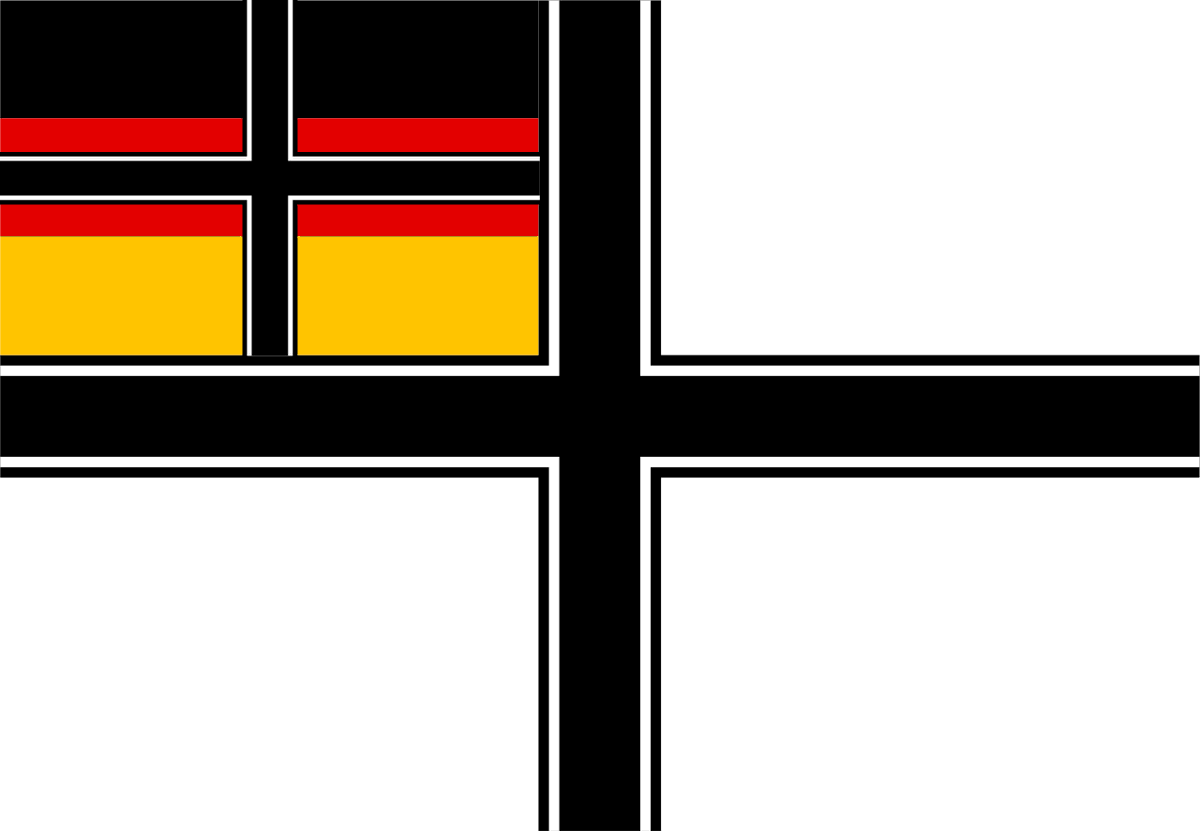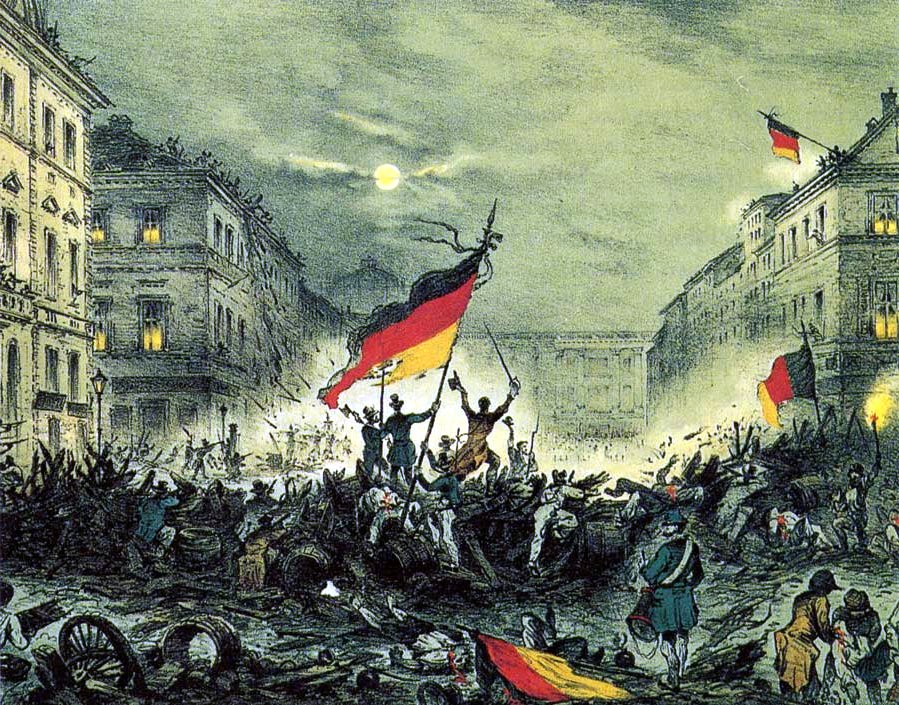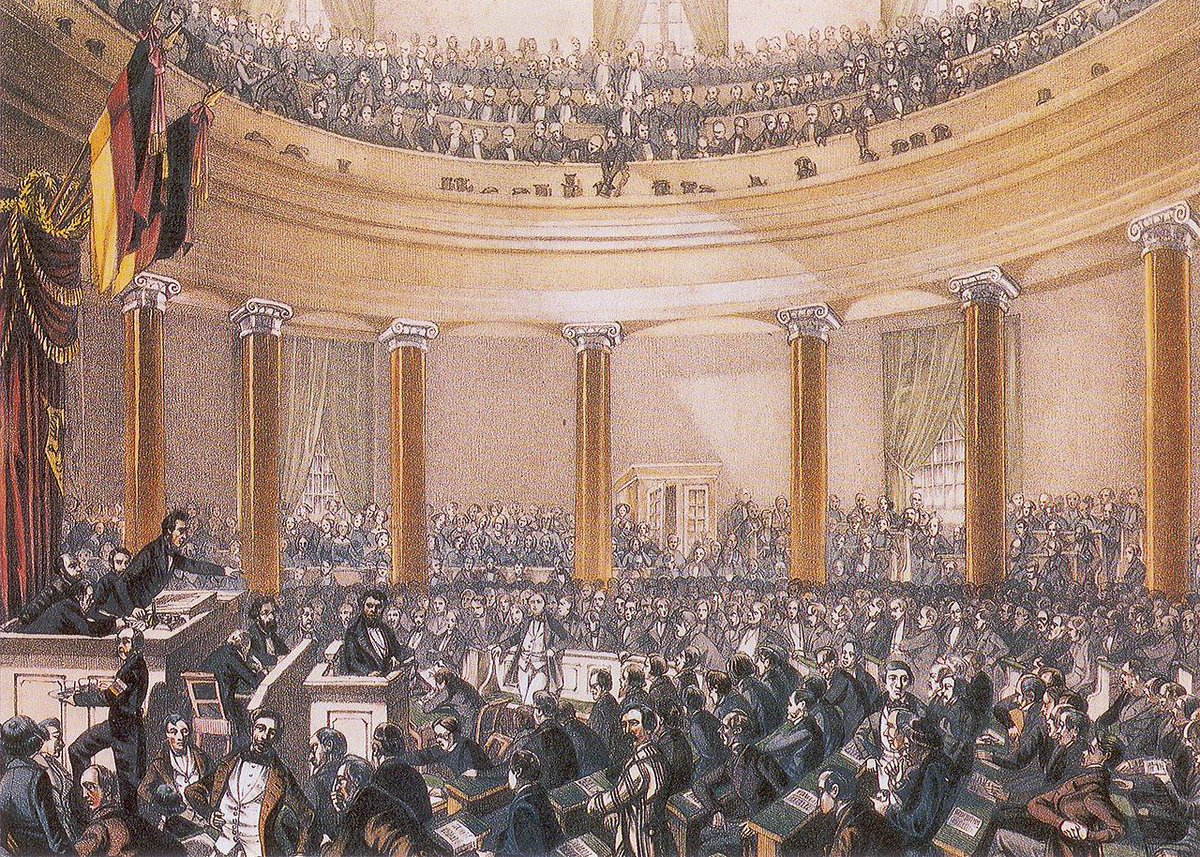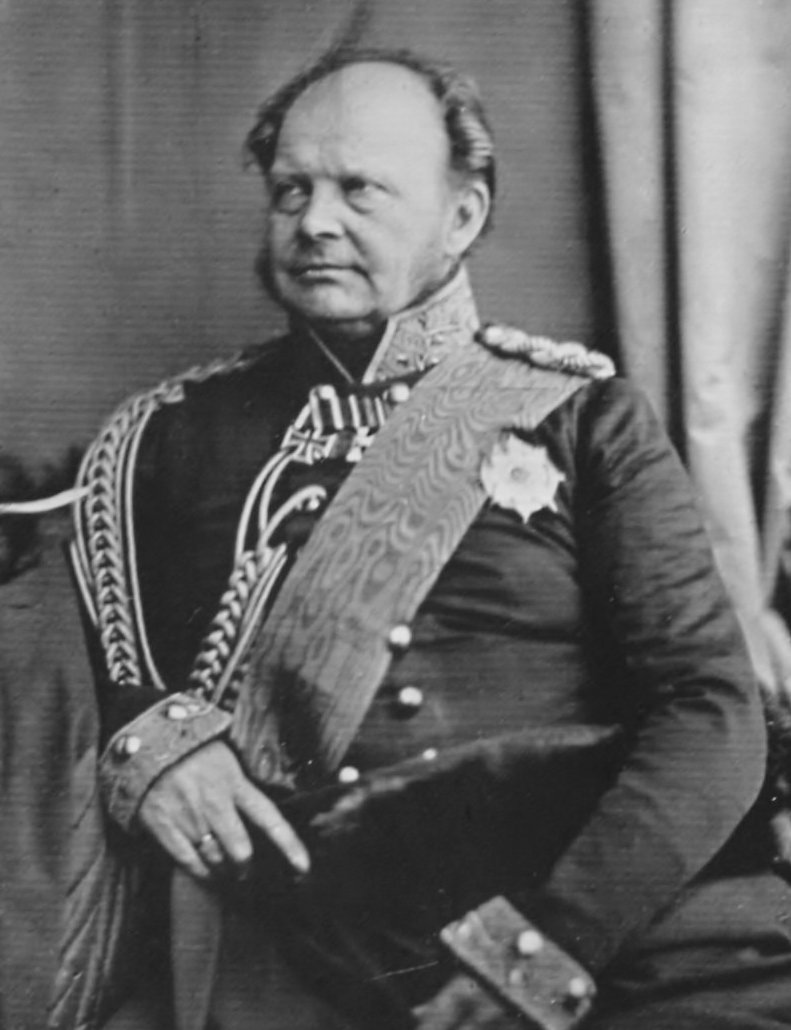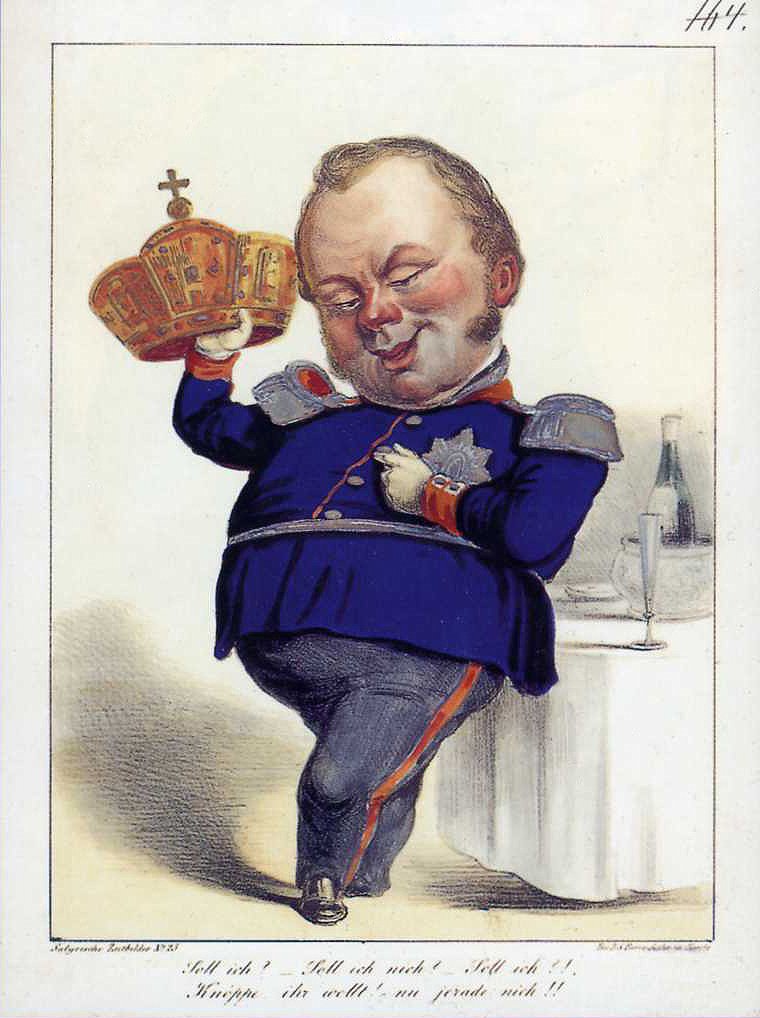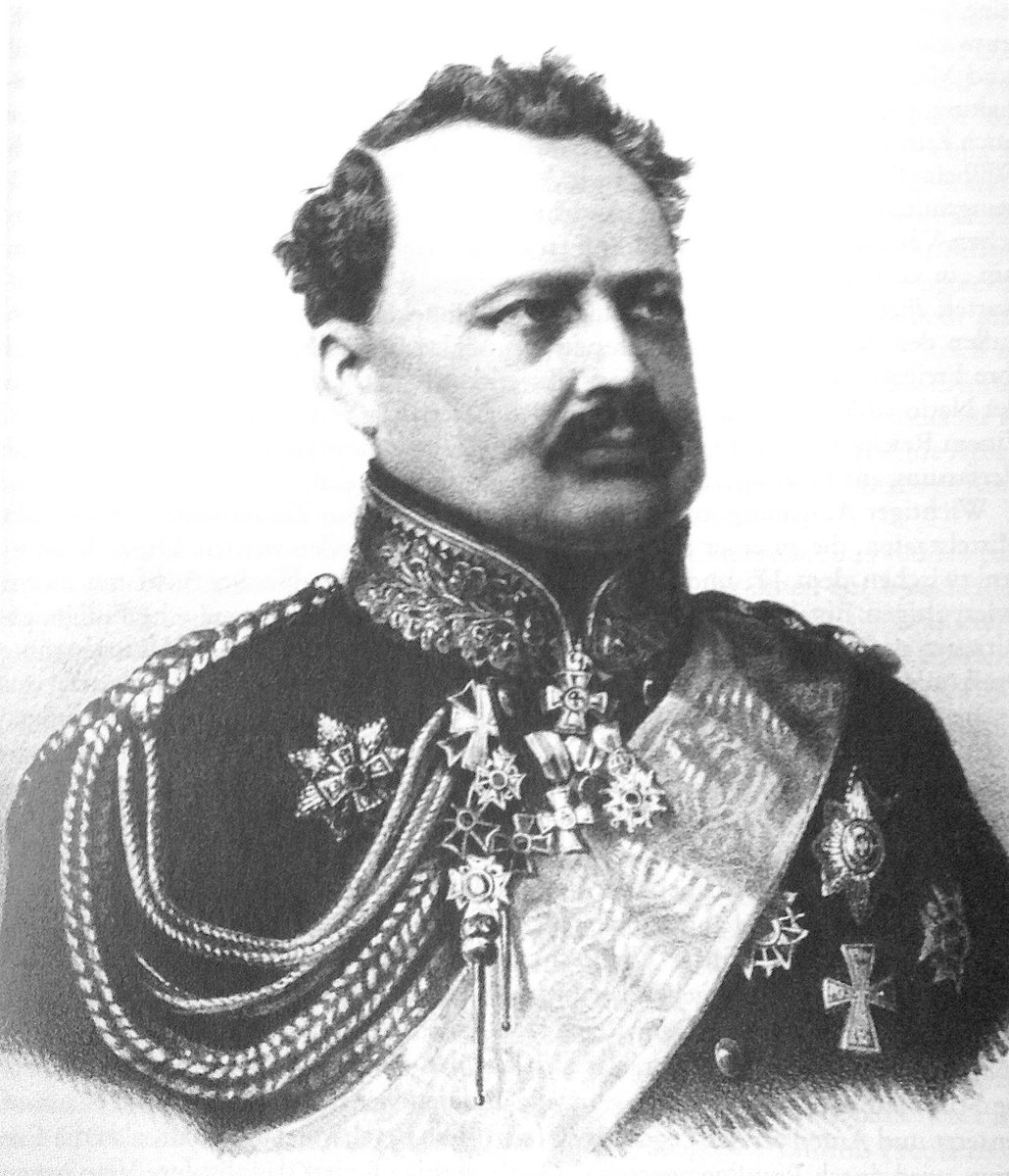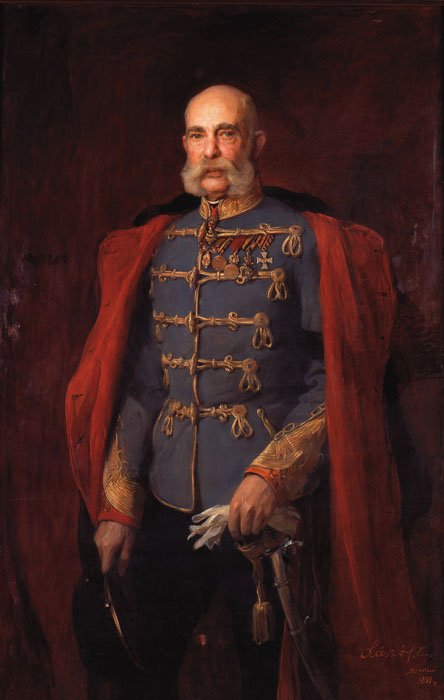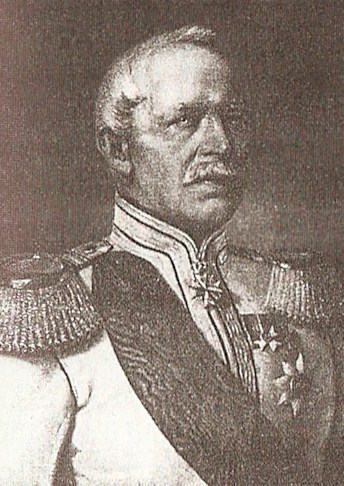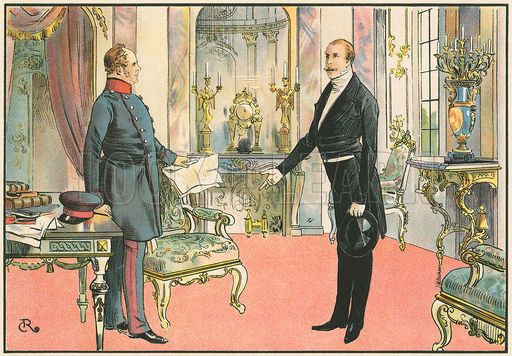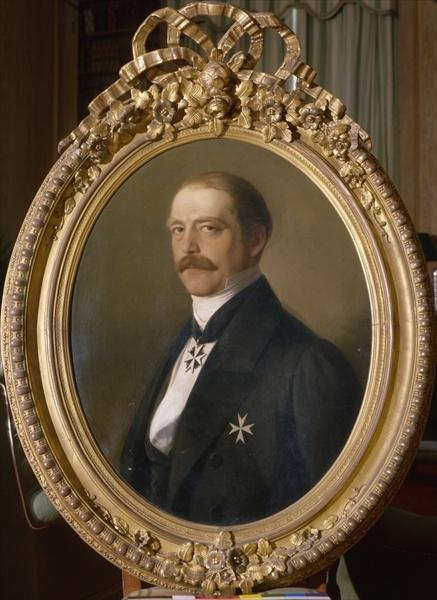To understand how Bismarck ended up in Russia we need to go back to the Erfurt Union (Erfurter Union) was a short-lived union of German states under a federation, proposed by the Kingdom of Prussia abandoned under Austrian pressure at the Punctation of Olmütz.
In 1848 a series of revolutions led to the dissolution of the Bund under Austria leadership and the Diet was replaced by Germany's first freely elected parliament, including the German areas of Austria-Hungary, the Frankfurter Nationalversammlung.
The liberal/nationalist dominated assembly proclaimed a new constitution creating a German Empire based on the principles of parliamentary democracy.Prussian support for the draft constitution led to Frederich Wilhelm IV of Prussia being the imperial crown on 2 April 1849.
As a believer in the Divine Right of Kings and with the balance of power tilting against the liberal, Frederick William IV dithered and then refused the crown on the grounds that the liberal constitution was an abridgment of the rights of the princes of the German states.
Caricature of Frederick William IV's rejection of the imperial crown; lithograph after a drawing by Isidor Popper.
Withdrawl of Prussian endorsement sounded the death knell of the Frankfurt Assembly. But it had opened up Prussian ambitions under the Unionspolitik (union policy) designed by deputy Joseph von Radowitz for a Smaller German Solution under Prussian leadership
Despite support from Hannover and Saxony for the union and most smaller states supporting the Erfurt Union, Austria under its new Emperor Franz Josef worked actively to undermine and for the restoration of the Federal Assembly in Frankfurt in September the same year.
The conflict came to head over the crisis in the Electorate of Hesse, where the Elector Fredrick William's reactionary policies had led to a popular revolt forcing him to flee Kassel. In desperation, the Elector called on the Diet and Bund troops to restore order.
At Bregenz in October 1850, the Emperor of Austria and the Kings of Saxony, Württemberg and Bavaria resolved to comply with the requests of the Elector of Hesse and advance federal troops into the electorate, and by extension acknowledged the revival of the Deutscher Bund.
Prussia took that the positon that the Diet and Bund abdicated its function when the Frankfurt Parliament succeeded it. Subsequently, Prussia declared that it would resist the self-styled Diet by arms if it marched troops into the Electorate of Hesse.
Russian support for Austria's position in late October 1850 (the two had been on side in crushing liberal resistance after 1848) led to Prussia backing down and accepting intervention by the Bund in the states that recognized it.
Under continued pressure from Tsar Nicholas I, Prussia reached an agreement with Austria (Punctation of Olmütz, 25 November 1850) abandoned the Erfurt Union and accepted the revival of the Bund under Austrian leadership.
It was in this milieu that in 1851, Frederick William IV appointed Bismarck as Prussia's envoy to the Diet of the German Confederation in Frankfurt.
In this job, he sparred constantly with the Austrian representative over trivial and substantive matters always pushing for Prussian parity with Austria. His tme in Frankfurt also converted him to the cause of German unity.
Frankfurt made him pragmatic. He realised that expansion of Prussian power needed the support of other German states and French/Russian neutrality. He also understood that to remain politically relevant conservatives needed to coopt the liberal agenda to build a united Germany.

 Read on Twitter
Read on Twitter